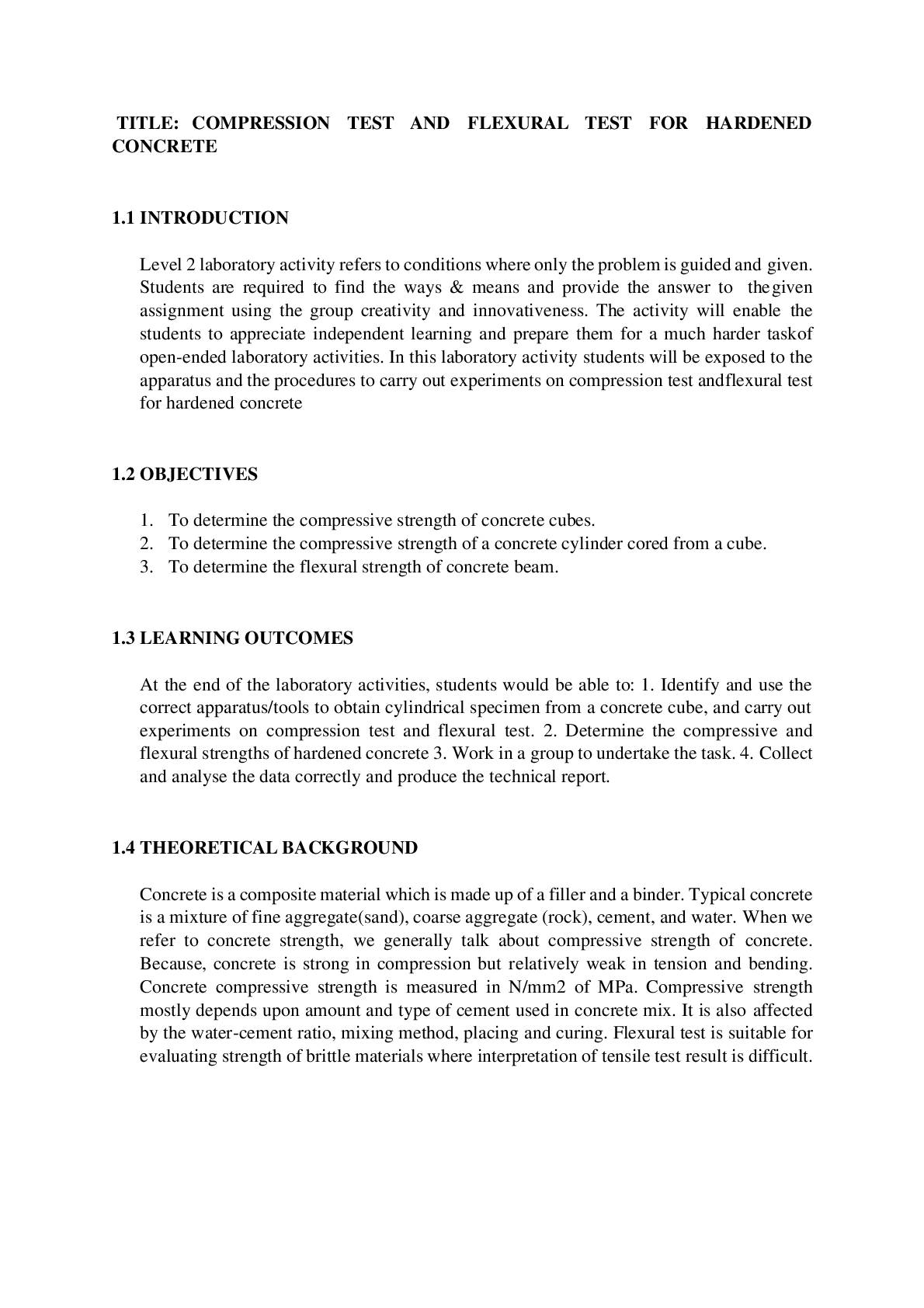TITLE: COMPRESSION TEST AND FLEXURAL TEST FOR HARDENED CONCRETE
1.1 INTRODUCTION
Level 2 laboratory activity refers to conditions where only the problem is guided and given. Students are required to find the
...
TITLE: COMPRESSION TEST AND FLEXURAL TEST FOR HARDENED CONCRETE
1.1 INTRODUCTION
Level 2 laboratory activity refers to conditions where only the problem is guided and given. Students are required to find the ways & means and provide the answer to the given assignment using the group creativity and innovativeness. The activity will enable the students to appreciate independent learning and prepare them for a much harder task of open-ended laboratory activities. In this laboratory activity students will be exposed to the apparatus and the procedures to carry out experiments on compression test and flexural test for hardened concrete
1.2 OBJECTIVES
1. To determine the compressive strength of concrete cubes.
2. To determine the compressive strength of a concrete cylinder cored from a cube.
3. To determine the flexural strength of concrete beam.
1.3 LEARNING OUTCOMES
At the end of the laboratory activities, students would be able to: 1. Identify and use the correct apparatus/tools to obtain cylindrical specimen from a concrete cube, and carry out experiments on compression test and flexural test. 2. Determine the compressive and flexural strengths of hardened concrete 3. Work in a group to undertake the task. 4. Collect and analyse the data correctly and produce the technical report.
1.4 THEORETICAL BACKGROUND
Concrete is a composite material which is made up of a filler and a binder. Typical concrete is a mixture of fine aggregate(sand), coarse aggregate (rock), cement, and water. When we refer to concrete strength, we generally talk about compressive strength of concrete. Because, concrete is strong in compression but relatively weak in tension and bending. Concrete compressive strength is measured in N/mm2 of MPa. Compressive strength mostly depends upon amount and type of cement used in concrete mix. It is also affected by the water-cement ratio, mixing method, placing and curing. Flexural test is suitable for evaluating strength of brittle materials where interpretation of tensile test result is difficult.
2.1 PROBLEM STATEMENT
Students are required to determine the mechanical properties of hardened concrete at the age of 28 days (compression strength using three 150x150x150 cubes; flexural strength using a 100x100x500 prismatic beam; and compressive strength of a cylinder with 100 diameter obtain from one of the cubes with coring method) for of specific grade (as specified in their design mix) by conducting compression and flexural tests. Students are required to find the ways & means of the tests and subsequently analyses the data and present it in a proper technical format.
..................................................................continued.....................................................................................
[Show More]

